25 Great Educational Board Games for 3-4 Year Olds

Board games are a fantastic tool for academic growth and early years development for young kids.
The right games can provide more than simple entertainment; they boost crucial development and help to stretch a child's cognitive and social skills.
In this article you'll find fun board games 3 year olds and above will love! You'll learn about the research on the impact of games on learning and find the best board games for young kids to check out.
Fun Maths Board Games for 3+ year olds
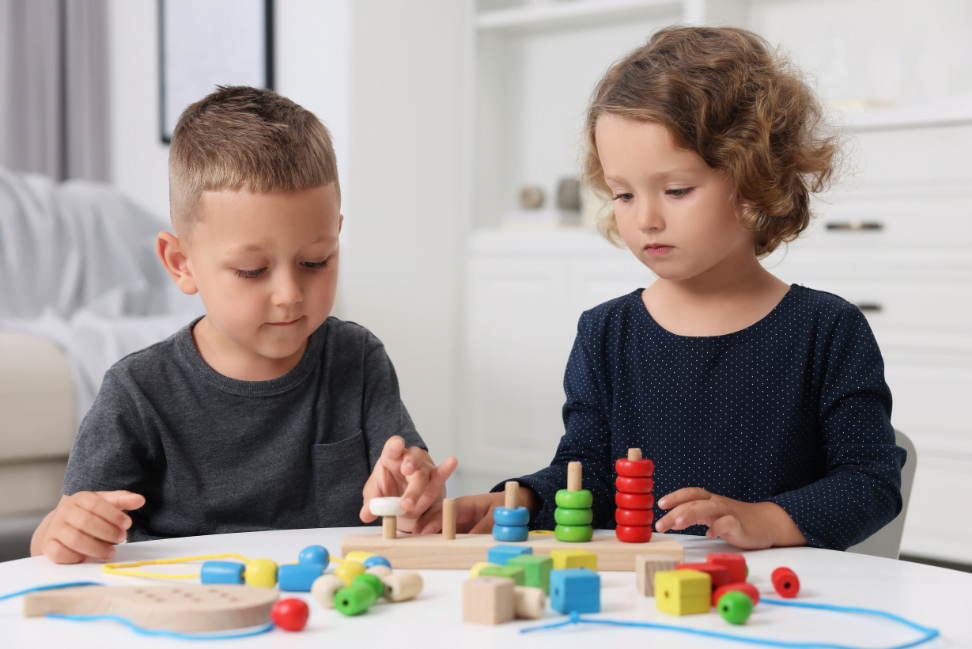
Research suggests that board games involving numbers like counting dice or recognising numbers on cards, can really help young kids develop early math skills.
Interestingly, games that involve moving pieces along a straight line appear particularly effective in helping kids understand numbers quickly. One study found that preschoolers who played a game moving counters on a number line for one hour got better scores on a numeracy test compared to kids who played a colour-matching game or game involving numbers in a circle.
The researches theorised that this method of placing numbers on a line was most effective because it helps young children visualise moving forward and backwards while counting.
Chutes and Ladders
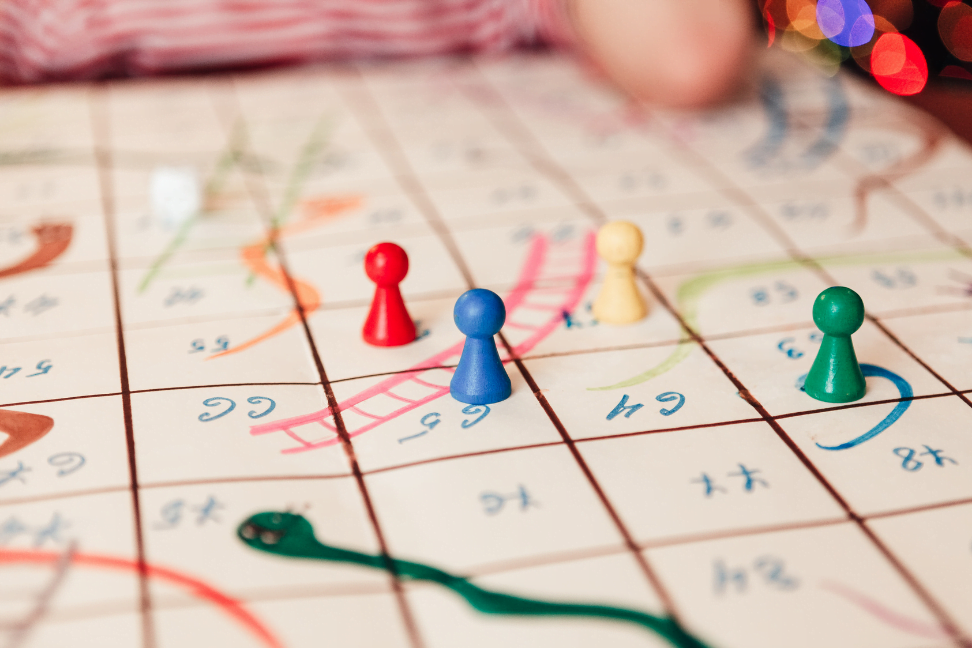
Chutes and Ladders (or Snakes and Ladders here in the UK!) is an excellent board game for young children to practice counting along a line. In this game, players move their pieces according to the numbers they roll on a die, traveling up ladders and down chutes (or snakes) based on where they land.
The game helps hone little ones' counting skills and the visual progression along the game board help reinforce number sequences and provide a practical, engaging way for children to improve their counting abilities. The ups and downs of the game also introduce an element of surprise and fun, keeping the game exciting while educational.
For young children it's a great idea to choose a version that's got a board and pieces that are chunky enough for little hands to grab!
Hi Ho! Cherry-O
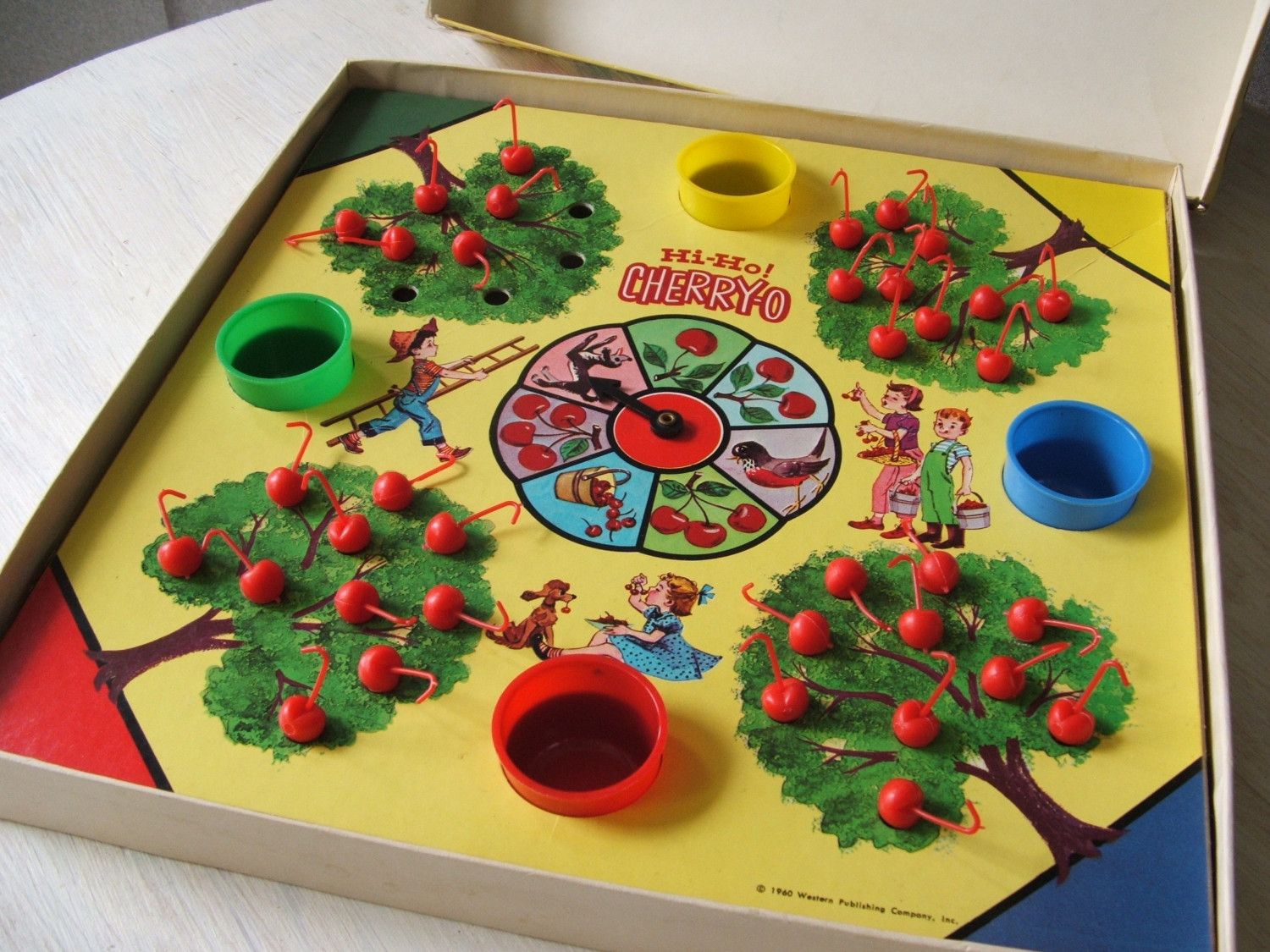
HiHo! Cherry-O is another classic board game for young children to practice counting through engaging play. In this game, children spin a spinner and then add or remove cherries from their individual trees according to the spinner's outcome. The goal is to be the first to fill your basket with cherries.
The game helps in developing a child's counting skills. The visual interaction with the colourful cherries and the clear numbers on the spinner reinforce number sequences and provide a hands-on way for children to enhance their counting abilities.
Feed the Woozle
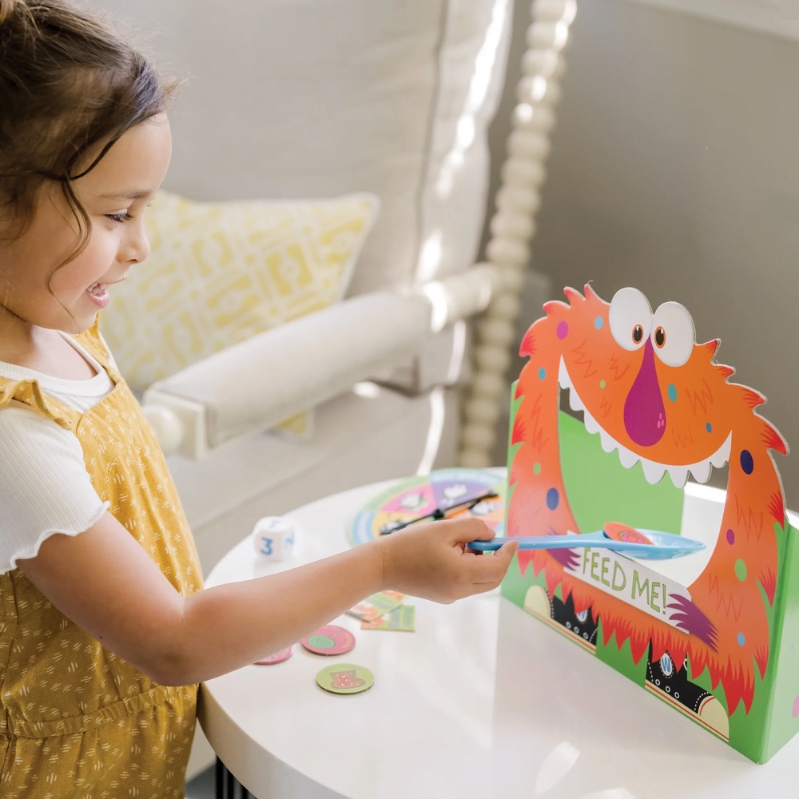
Feed the Woozle is a fun board game designed for young children to develop their counting and coordination skills. In this game, players take turns rolling a die to determine how many silly snacks they need to feed the Woozle. Using a spoon, they then carry the snacks and feed them to the Woozle figure on the board.
The playful setup helps children practice counting the number of snacks they need to pick up and encourages precise movement and coordination when using the spoon.
Fun Games For Language Development
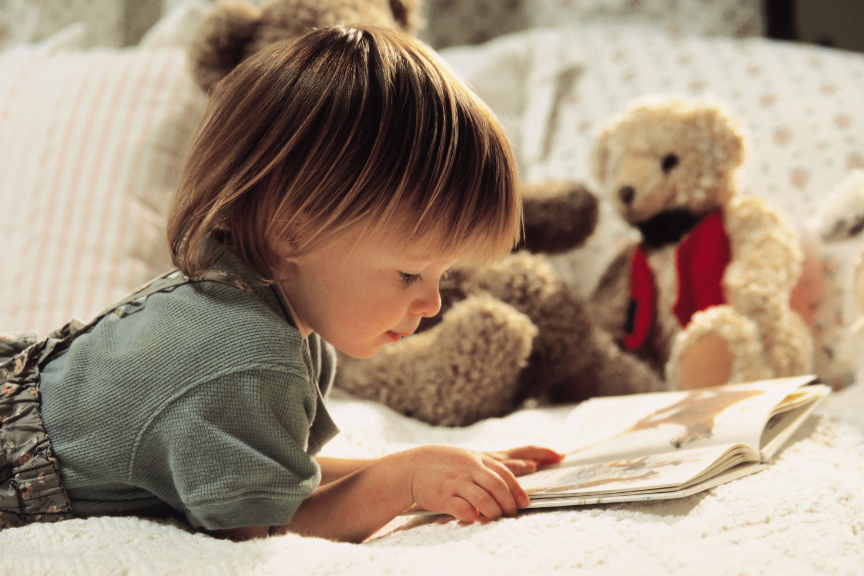
Studies have shown that board games are effective in helping kids boost their vocabulary and get the hang of words and phrases. This early language development is closely linked to academic achievement is later life.
Games that aid language development are particularly good at developing a child's "language nutrition," and helping children gain more varied range of words and phrases.
Fun word games can play a big part in giving kids this boost, helping to close the word gap some kids face before they start school.
Sequence for Kids
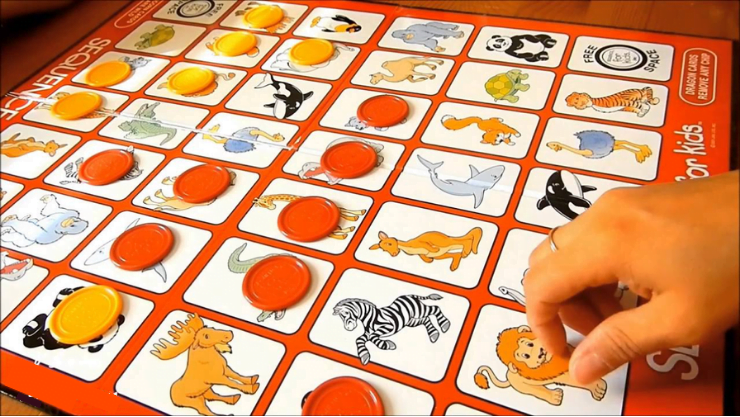
Sequence for Kids is a simpler version of the classic Sequence game, adapted for younger players. The game uses cards with animal pictures and a board with a grid of animal images. Players play their cards to place chips on the corresponding animal on the board, aiming to create a sequence of four in a row. It teaches sequence through visual matching and strategy.
EeBoo's Create a Story Cards
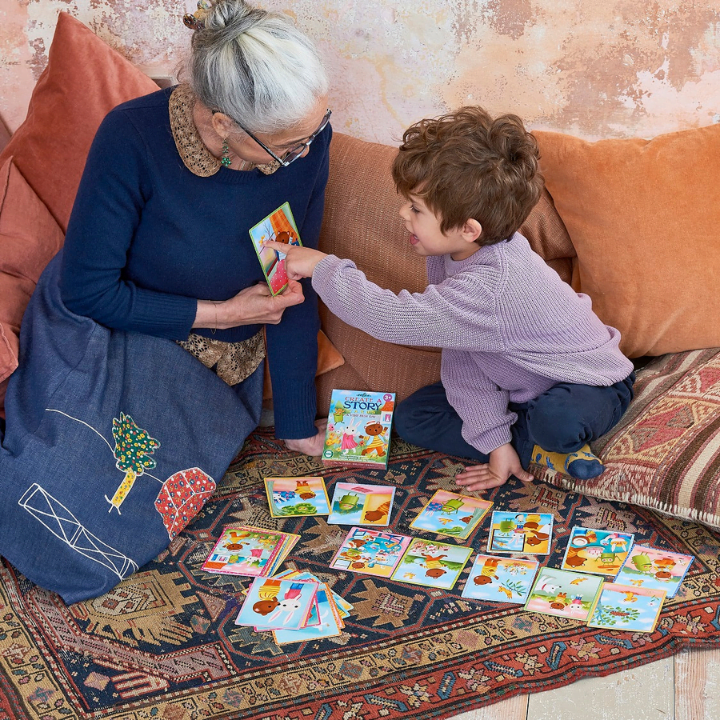
Create a Story Cards offer a fun and imaginative way for children to build their storytelling skills. Each card features beautifully illustrated scenes, characters, or objects that spark creativity and imagination. As kids arrange these cards in different sequences, they craft unique stories, developing their language skills and narrative ability.
This game encourages children to think creatively, express their ideas, and understand sequence and consequence.
My First Bananagrams
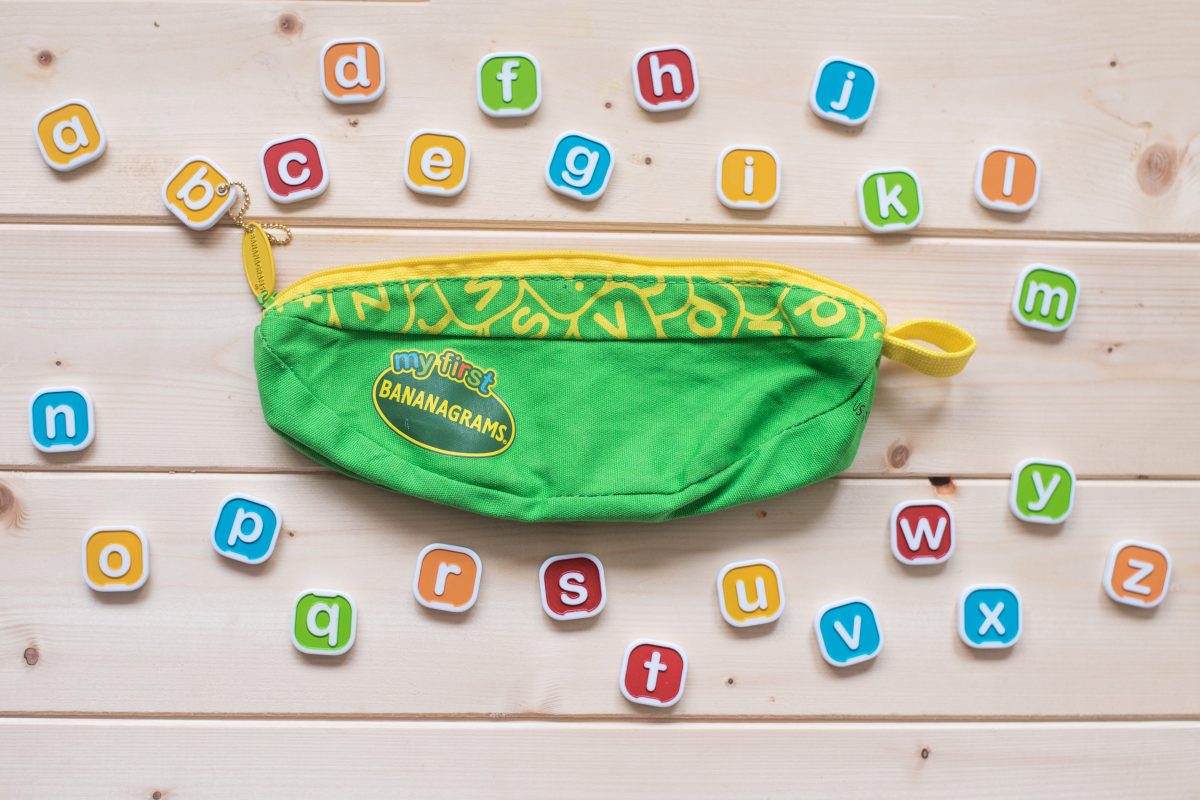
This version of the classic game Bananagrams uses lowercase letters and combinations of letter tiles to help children grow into their spelling skills. The game involves creating a grid of connected words, enhancing children’s ability to sequence letters into words.
Guess In Ten!
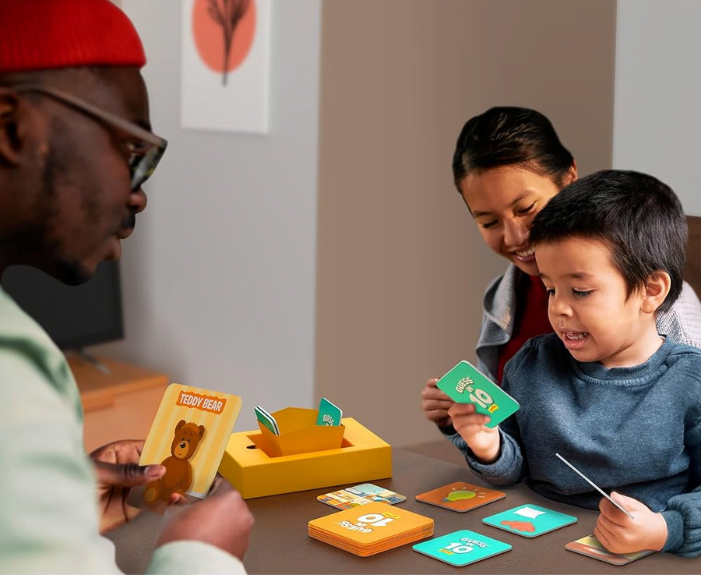
This is a fun card game that boosts verbal language skills in young children. Players pick a card and try to guess what's on it by asking up to ten "yes/no" questions.
The game helps children to develop their vocabulary as they learn to formulate questions and deduce answers.
Alphabet Go Fish!
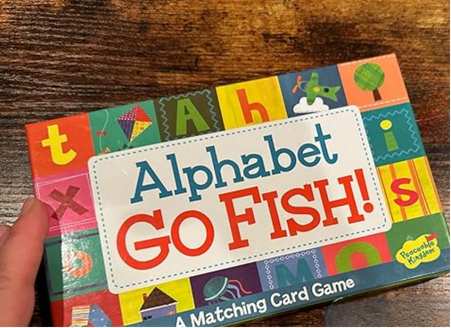
Another classic card game that includes a special deck featuring letters instead of numbers. It’s perfect for young learners to practice letter recognition and alphabetical order while also enjoying the challenge of matching and sequencing letters through gameplay.
Great Games For Motor Skills
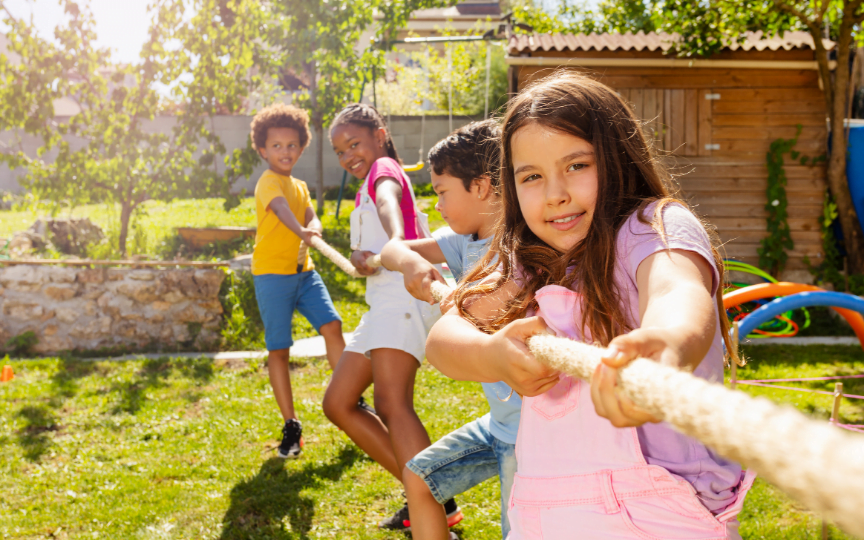
Physical games are a great way to engage children in activities that build strength and coordination.
In a study of children's play activities, researchers found that structured physical games, especially focusing on movement skills like running and hopping, significantly enhanced both physical activity levels and the development of fundamental motor skills over a seven-week period in preschoolers. The study found that while unstructured play also increased physical activity, it was not as effective in improving children's physical skills.
Activity-based games have been shown to not only keep children entertained but also contribute meaningfully to their physical growth and development.
Here are some great games that can help build physical strength, coordination and fine motor skills.
Twister
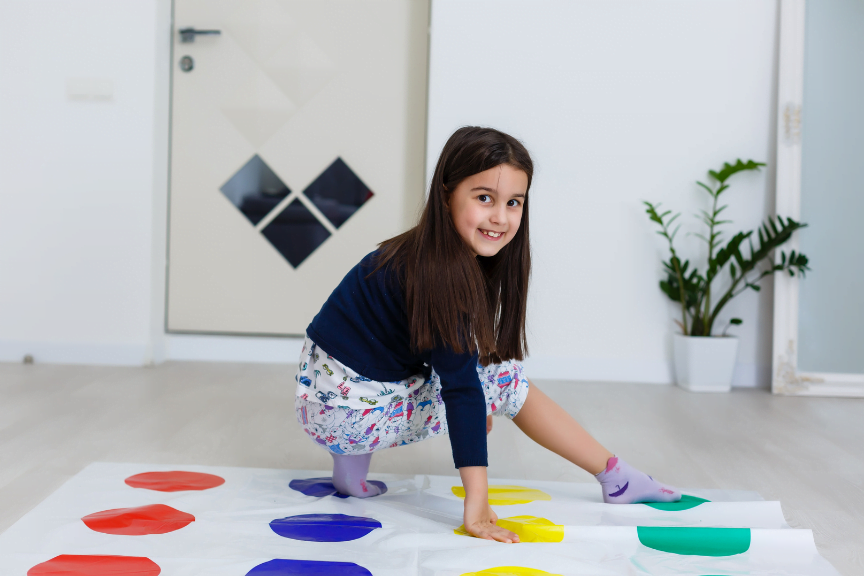
Twister is a really fun game that involves placing hands and feet on coloured spots on a mat, according to the spinner's instruction. The junior version of the game has a two-sided mat and is great for developing motor skills and balance as children stretch and maintain poses without falling over.
Operation
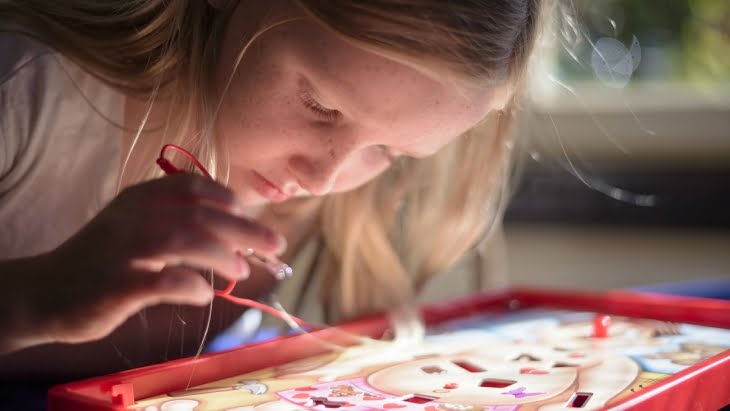
Operation is a classic board game that challenges young children's fine motor skills and hand-eye coordination. Players use tweezers to remove various objects from a patient's body without touching the sides. This tense and precise activity helps develop steady hands and concentration.
Jenga
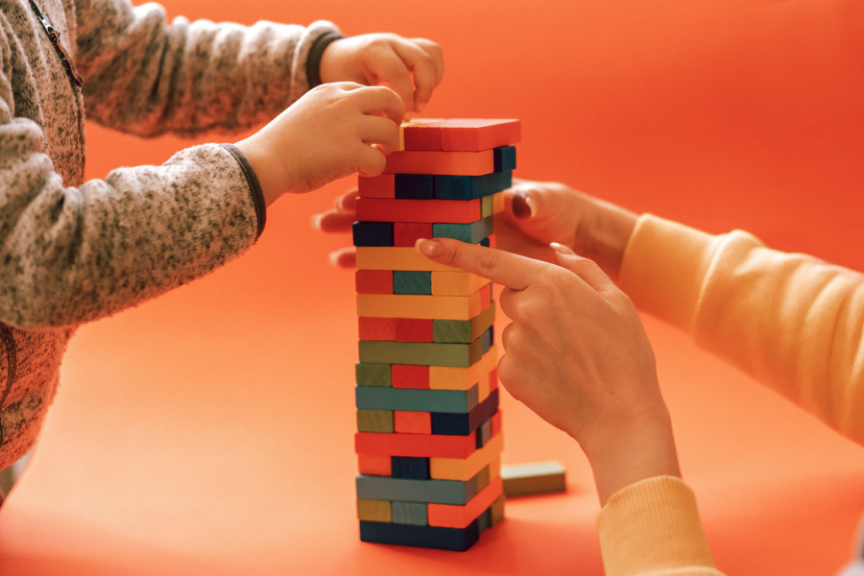
Jenga is another excellent game for motor skill development. Players take turns removing wooden blocks from a stacked tower and placing them on top, trying not to topple the structure. This game requires a gentle touch and strategic thinking, enhancing both fine motor skills and spatial awareness.
Animal Upon Animal
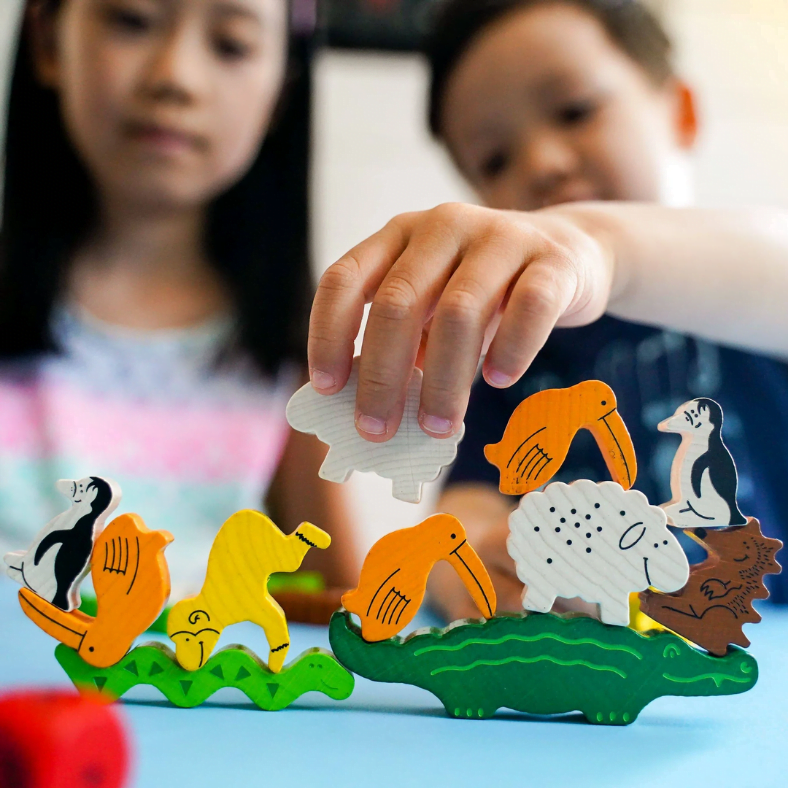
Animal Upon Animal is a super fun stacking game that gets kids to balance wooden animals in a growing, wobbly pile. Players take turns adding animals to the stack, trying to keep everything from tumbling down.
It’s a great way for little ones to work on their hand-eye coordination and think about how to keep everything balanced. This game is perfect for young kids to learn about balance and coordination as well as patience and cause and effect!
Hungry Hungry Hippos
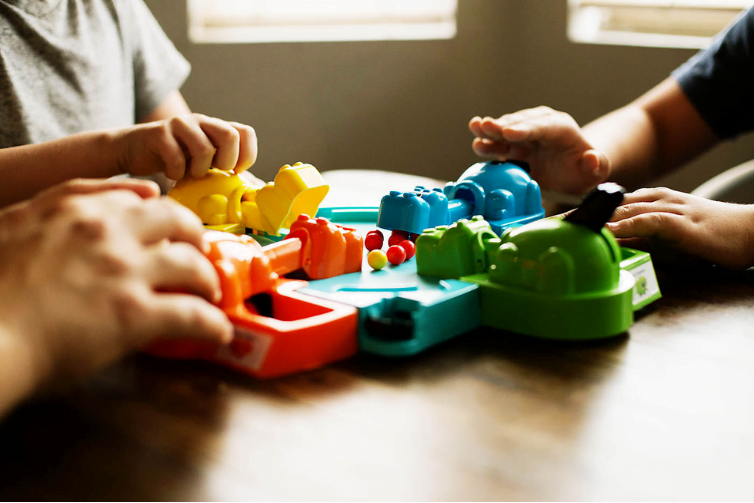
Hungry Hungry Hippos is a fun and lively game where children smack their hippo's lever to gobble up as many marbles as possible. This game helps improve hand-eye coordination and quick reflexes as players time their hippo's chomps.
Great Games For Memory & Problem Solving
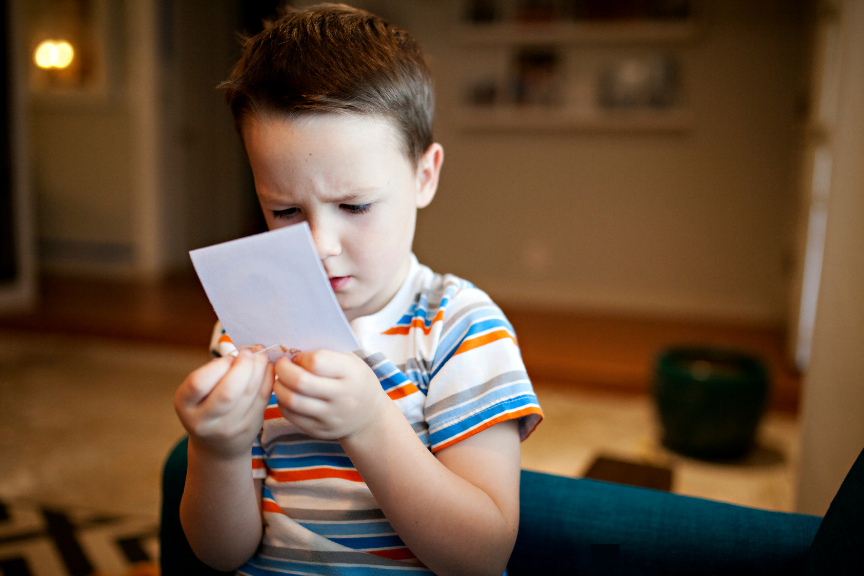
Board games are wonderful tools for boosting young children’s cognitive abilities.
Research has shown that engaging preschoolers to play games designed for thinking and problem-solving can greatly enhance these skills. These games help improve children’s ability to think critically and solve problems, even at a young age.
Here are some excellent games that can help develop memory and problem-solving skills in 3-4 year olds.
Spot It! Jr. Animals
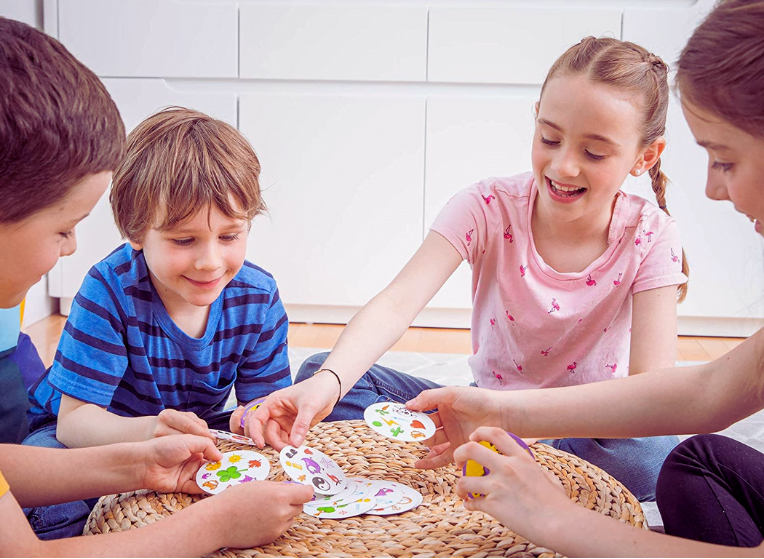
Spot It! Jr. Animals is a fantastic matching game for little ones that challenges them to spot matching animals on different cards. This game enhances visual perception and concentration as children look for matches among different images.
Four In A Row
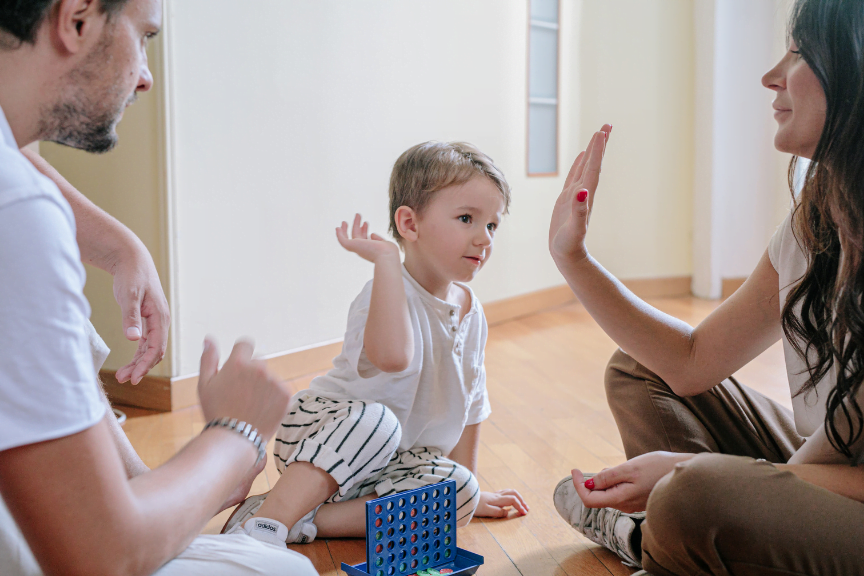
Four In A Row is a timeless strategy game that challenges young minds to be the first to line up four of their coloured discs in a row, either horizontally, vertically, or diagonally. It's a simple game that helps kids learn spatial reasoning and critical thinking skills. With its simple rules and fast-paced gameplay, it's an excellent choice for children aged 3 years and up.
The outdoor version is also a lot of fun and incorporates more active play for younger children!
The Sneaky, Snacky Squirrel Game
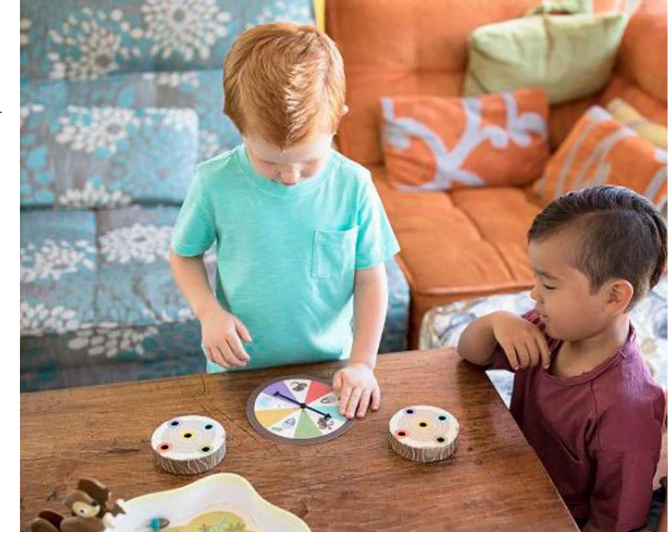
This awesome game involves using a squirrel-shaped tweezer to pick up and match coloured acorns to their corresponding holes on a tree stump. The game play is great for developing hand-eye coordination, fine motor skills, and early strategic thinking as children decide which acorns to pick and where to place them.
Hoot Owl Hoot!

In Hoot Owl Hoot! children work together to help owls fly back to their nest before the sun comes up. This game requires simple strategic thinking and decision-making skills as players coordinate their moves to ensure all owls make it home safely.
Qwirkle
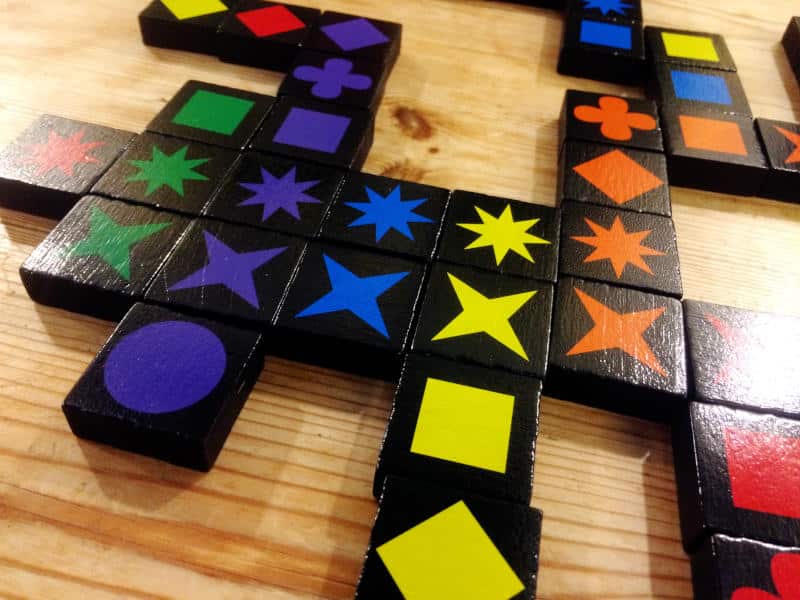
Qwirkle is a colourful fun game that combines strategy with pattern recognition. Players lay down tiles with different shapes and colours to create lines that either share a common colour or shape.
The goal is to build rows and score points based on how cleverly the tiles are placed, encouraging kids to think ahead and strategise. The game can be challenging for young players as they learn to match and think tactically.
Uno Junior

Uno Junior is another classic game adapted to suit younger players with simpler rules and delightful animal-themed cards. This game introduces children to the concept of matching by color and number, which is an excellent way to develop recognition skills and understand the basics of sequences and strategy. Players take turns matching a card from their hand to the card shown on the deck, either by animal or by colour, and use special action cards to mix up the gameplay.
Great Games for Developing Social Skills
Almost all games have elements of social learning - like turn taking, following rules. Board games that promote cooperation, communication and empathy are particular powerful tools for nurturing social skills in young children.
Snug as a Bug in a Rug

Snug as a Bug is a cooperative game, players work together to help the colourful bugs find their way back to the rug before the stink bugs take over. Encourages teamwork, problem-solving, and empathy as players discuss strategies and support each other to achieve a common goal. No reading required, making it accessible for young children.
Friends and Neighbours: The Helping Game
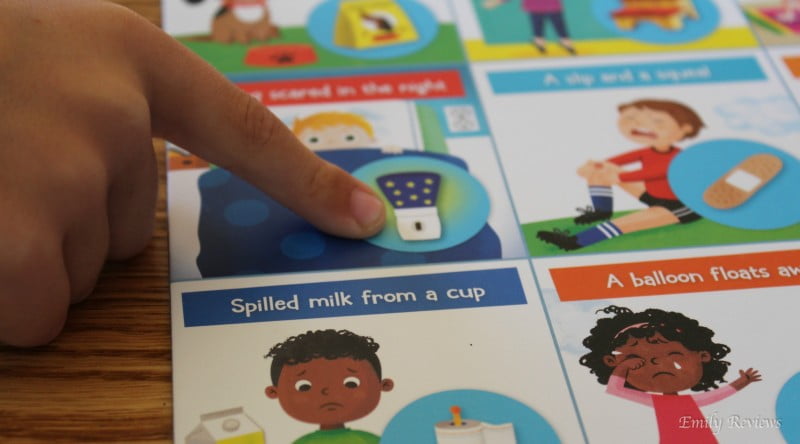
Friends And Neighbors is a cooperative game that focuses on recognising and expressing emotions as players help various characters with their problems. Children draw cards depicting different scenarios and discuss how they can help the characters feel better. Promotes empathy, emotional intelligence, and understanding of others' perspectives.
Max

Max is a cooperative game where players work together to help Max, the friendly monster, reach his monster daycare. Players take turns rolling the dice and moving Max along the path, encountering various obstacles that require teamwork to overcome. Encourages collaboration, problem-solving, and communication as players navigate challenges together.
Race to the Treasure!
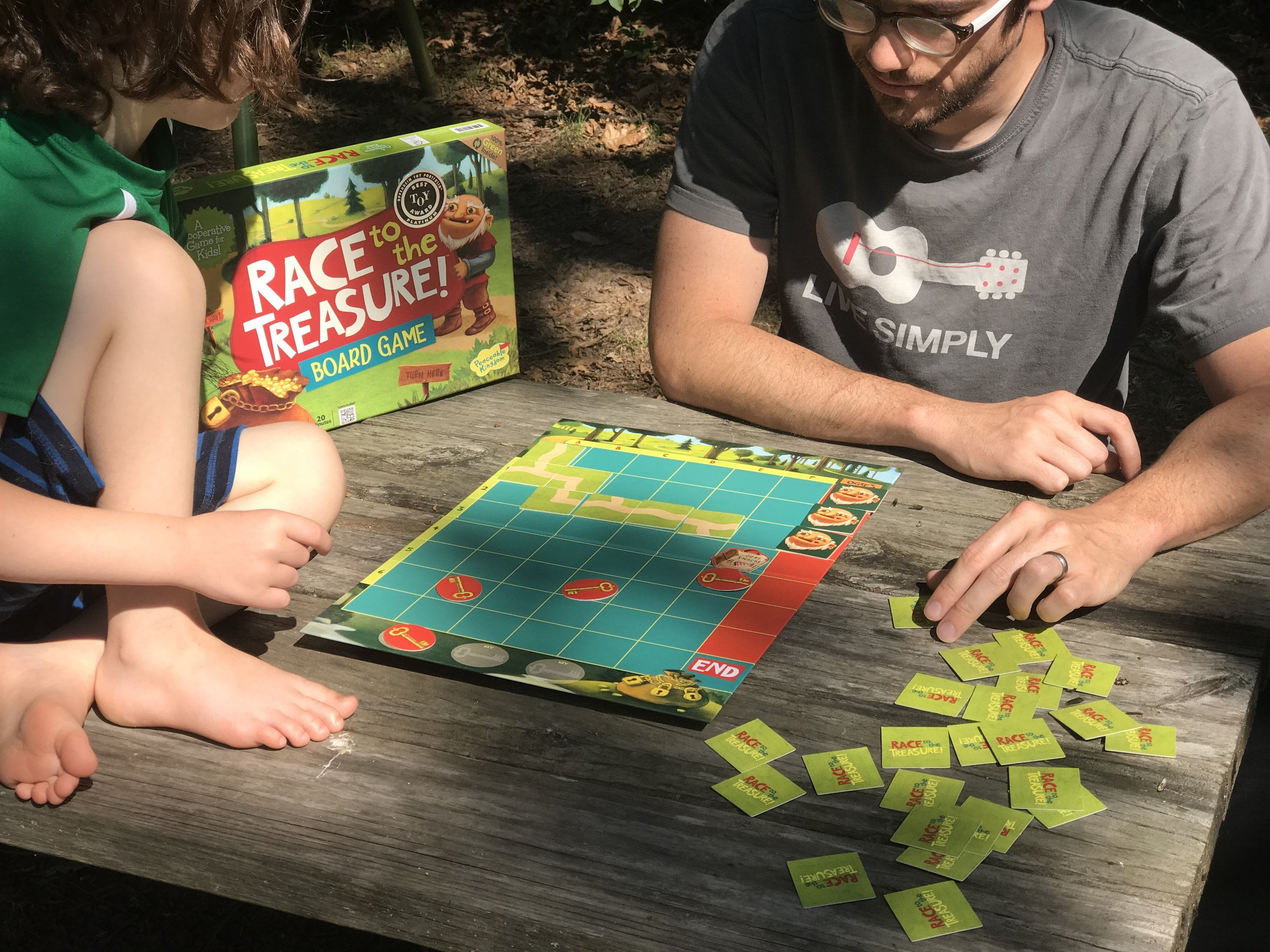
This is another great cooperative game where players race to collect three keys and reach the treasure chest before the ogre does. Players collaborate to create a path of tiles, avoiding the ogre's path and collecting keys along the way. Encourages teamwork, strategic thinking, and communication as players plan their route together.
My First Orchard

My First Orchard is a cooperative game that encourages children to work together to pick fruits from the trees before a raven reaches them. This game helps with colour recognition, counting, and basic problem-solving as children figure out the best strategy to collect the fruits.
Eye Found It!
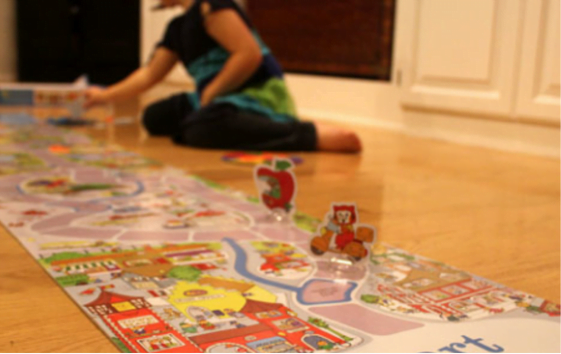
Eye Found It! is a fun hidden object game that takes players on a fun journey through vibrant and detailed scenes. Children work together to find hidden objects amidst the bustling landscapes, fostering teamwork and cooperation.
There are different versions of the game tailored to children's interest, our favourite is based on Richard Scarry's Busytown book.
As they search for specific items, kids enhance their observation skills and hone their ability to communicate and collaborate with others. This game is perfect for encouraging social interaction and promoting essential skills such as teamwork, communication, and attention to detail, making it an ideal choice for young adventurers!
Tips to Help Make Games Fun
Let's be honest playing with toddlers can be unpredictable at best! So here are a few tips to make playing games with young kids fun for them (and you!)
Choose An Age Appropriate Game
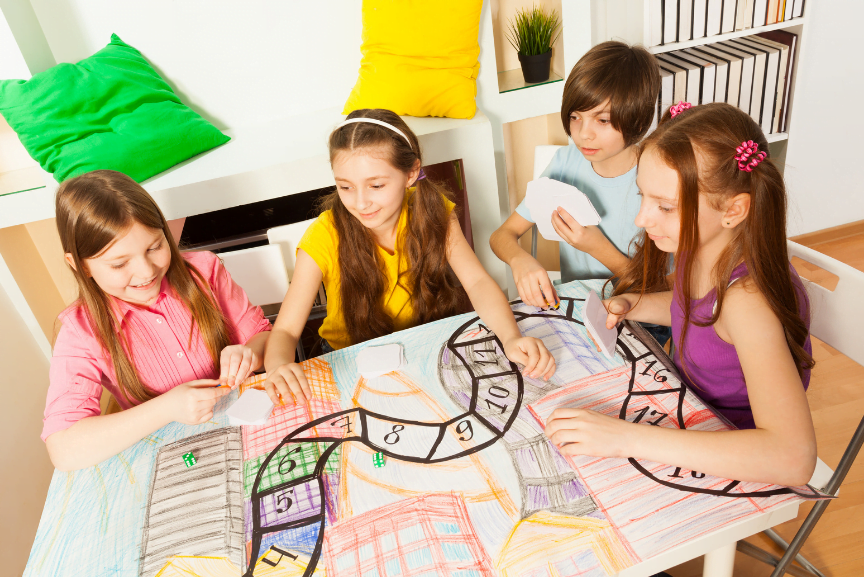
The board and card games in this article are all great for 3 year olds and above.
In general games should be visually appealing, have straightforward rules, and include physical components that are easy for small hands to manage that don't present choking hazards if they do get tempted to pop pieces in their mouths!
Encourage Fun Rather Than Competition
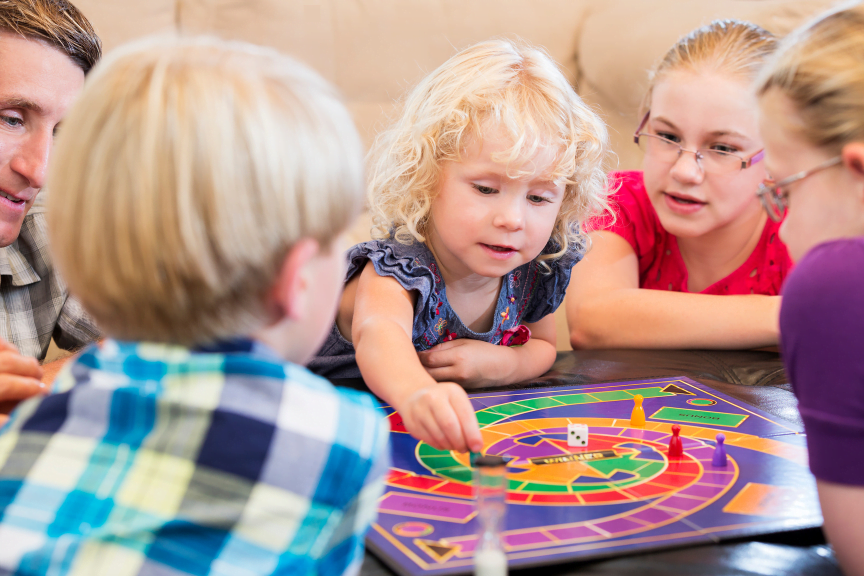
The main aim of playing games with young children should be enjoyment, not competition.
Encourage laughter and silliness; it’s okay to be goofy! This approach helps keep the children engaged and makes the game more enjoyable for everyone.
Change The Rules
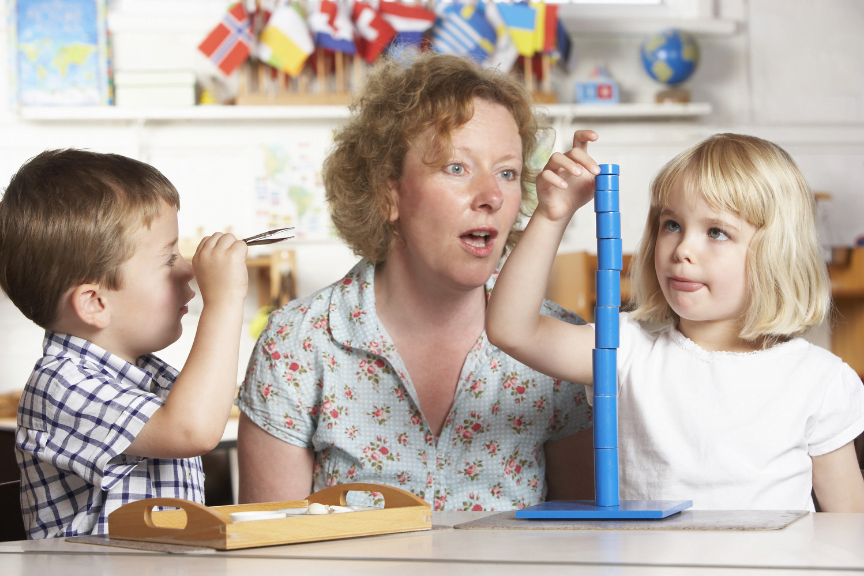
You may need to modify the rules to suit younger players better or to introduce a new twist. Simplifying the game can prevent frustration, such as by reducing the number of pieces or shortening the duration of the game to keep their attention. Creative adjustments, like singing actions or introducing playful penalties, can transform a familiar game into a delightful new challenge.
Encourage Every Player
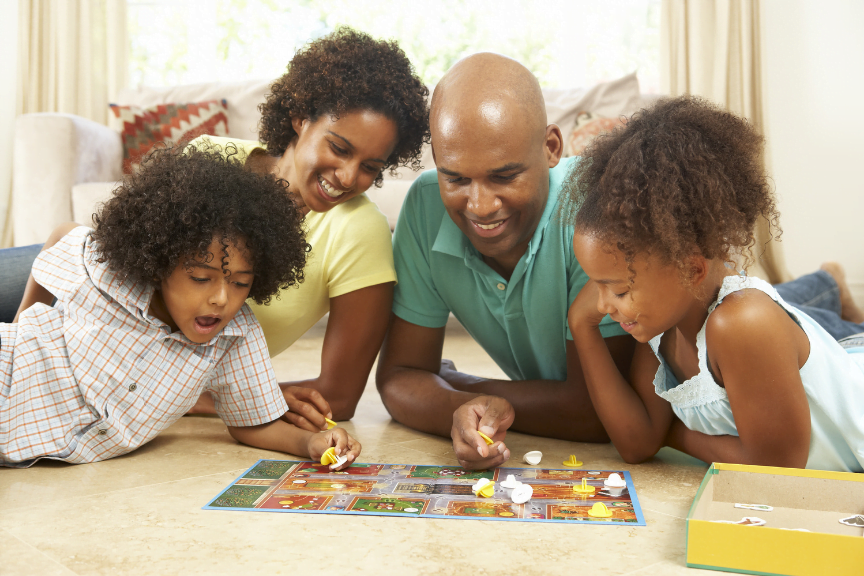
Development can be quite variable in toddlers and preschoolers, so it's important to make sure every child feels included and able to participate.
Encourage players to take turns and have a role in the game. You can also ask questions about the game or let them choose which piece to move to keep them actively engaged and feeling important.
Use Games as Teaching Tools
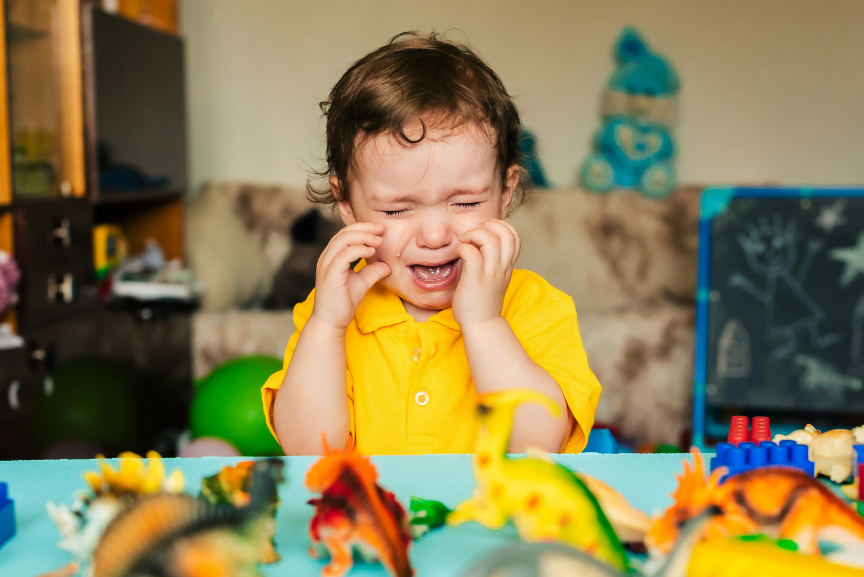
Games are excellent for subtly teaching important skills and concepts. While playing, point out colours, numbers, and shapes that are part of the game. You can also incorporate lessons about sportsmanship—like congratulating others on a good move or learning to handle losing gracefully. This not only makes the game fun but also educational.
Keep Sessions Short and Sweet

At around 3-4 years old children can typically concentrate on a quiet task for up to 20 minutes. This period is even shorter in younger children. So to avoid frustration its important to keep game sessions short and to avoid trying to 'finish' longer games.
It's a good idea to change the rules to create an end so there is a sense of achievement, and come back to the game later.
Celebrate the Effort, Not Just the Outcome

It's been shown that celebrating a child's effort leads to higher engagement and quicker learning compared with praise that is focused on outcomes like winning.
So it's important to applaud their good tries and clever moves during the game. This positive reinforcement encourages them to continue participating and trying their best, regardless of the game's outcome.
Take Homes
Board games are more than just playtime fun—they're a goldmine of learning for little ones, especially those sprightly 3 to 4-year-olds. These games pack a punch, blending enjoyment with essential skills development, from counting and language skills to critical thinking and problem-solving.
By weaving these games into your child's routine, you're not just keeping them occupied—you're setting the stage for real growth in a way that feels more like play and less like learning. So, roll the dice, spin the spinner, and watch your little ones laugh, learn, and leap forward in their development with every move they make on the board.
This article was written by a member of the Poppet community! Download the app and join the community for free. And if you're interested in writing for us send the team an email!

